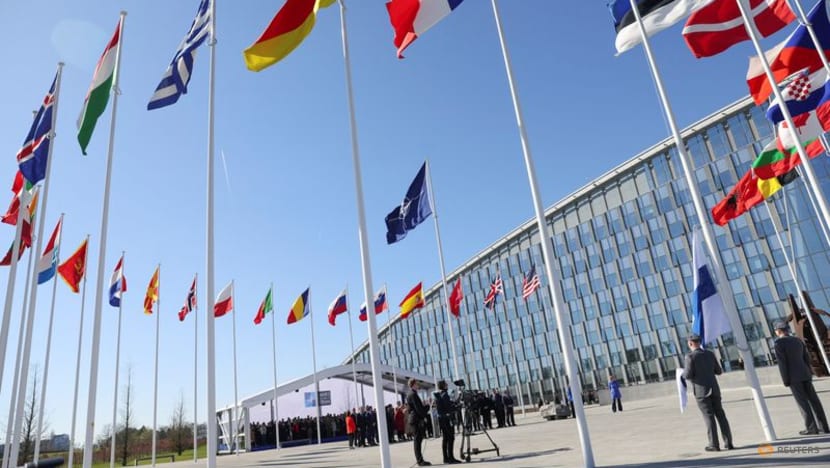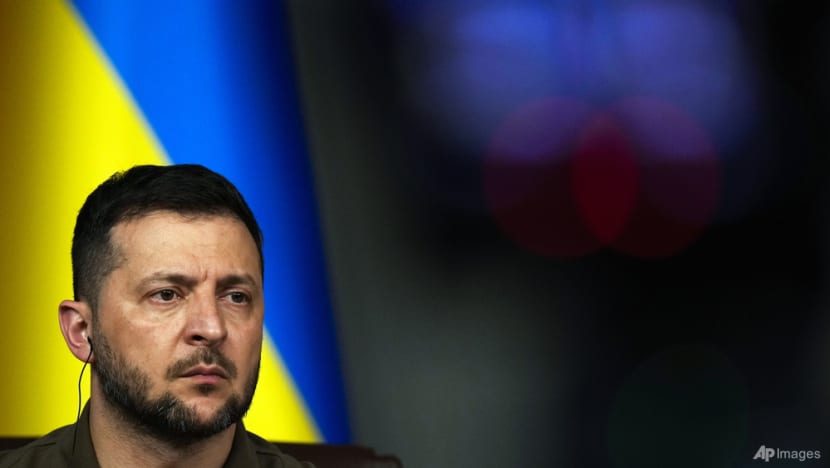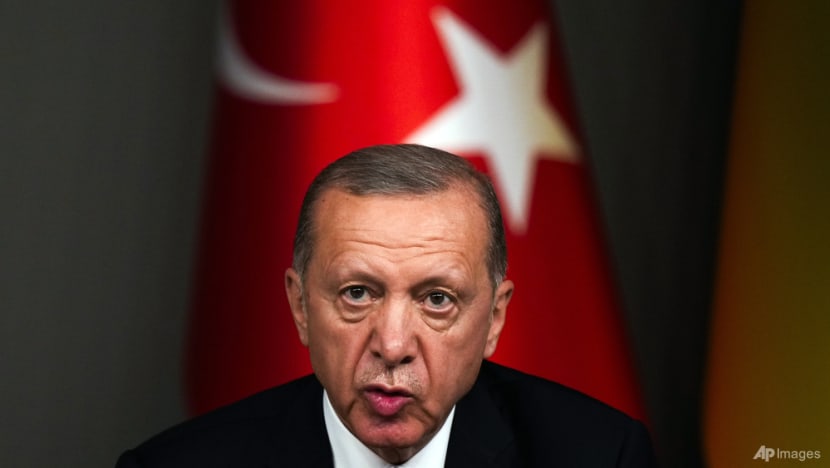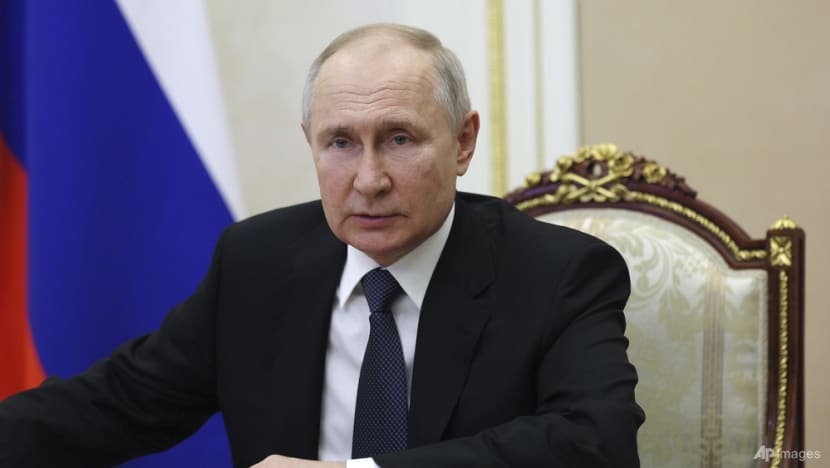Ukraine’s NATO membership ‘not on the table’ at upcoming summit: US official
The North Atlantic Treaty Organization (NATO) summit will be held in the Lithuanian capital of Vilnius from Jul 11 to 12.

SINGAPORE: Ukraine will be high on the agenda when members of the North Atlantic Treaty Organization (NATO) gather for the alliance’s annual summit next week.
Ukrainian President Volodymyr Zelenskyy has been pushing for his country to become a member of the bloc amid its war with Russia.
However, the alliance has stopped short of accepting it as a new member, instead choosing to further its support by providing Ukraine with weapons in its fight against Russia.
Held in the Lithuanian capital of Vilnius from Jul 11 to 12, the summit is also expected to see discussions over Sweden’s membership in the alliance, with Turkey still withholding its support and posing an obstacle to the unanimous decision needed.
“(The summit) will be special for a number of reasons. Obviously, the war in Ukraine has gone on for longer than people anticipated, and so NATO is gathering forces literally and figuratively,” said Associate Professor Marianne Hanson from the School of Political Science and International Studies at the University of Queensland.
“There are all kinds of commitments that were made at the last summit in Madrid, and some of those will be reviewed. Many of those haven't actually been met fully, but of course, the main context here is that at the last summit, Russia was explicitly declared as a direct threat to NATO.”
On the issue of Ukraine’s membership aspirations, Ms Julianne Smith, US Permanent Representative to NATO, said it is “really not on the table for the summit while a full-scale war is unfolding on their territory”.
She told CNA’s Asia Now: “Beyond that, the alliance is likely to come forward with a package of deliverables, both on enhancing our practical support for Ukraine and enhancing our political relationship with Ukraine.”

SWEDISH MEMBERSHIP
On the issue of Sweden's membership, Assoc Prof Hanson told CNA938 that Hungary could be pressured into consenting, but Turkey is “going to be a little bit harder, as relations between Turkey and Sweden haven't been great”.
“The re-election of President Erdogan in Turkey has again confirmed that Turkey is going to require a lot of pressure. There is some reluctance, part of which is to do with the political situation,” she said.

The Turkish government wants Sweden to be more active in banning and preventing certain organisations seen as inimical to Turkey's security, explained Assoc Prof Hanson.
“Whether that decision is confirmed next week or next year or in a few years' time is not too important. I think that there are more pressing issues, which are basically related to the broader expansion of NATO,” she said.
Apart from Finland and Sweden, NATO has been moving into the Asia Pacific as well, with Japan, South Korea, New Zealand and Australia set to be represented at the summit as key partners, noted Assoc Prof Hanson.
“That sort of indicates that NATO is very, very active in expanding its influence and its message at a much wider global level than has been the case in the past. Not everybody is entirely happy about that,” she noted.
Ms Smith said that joining the alliance as a member is a process which requires candidate countries to undertake a series of reforms.
“Ukraine has made remarkable progress both in democratic and security sector reforms over many years, but there's some additional work to be done. And so we are not in a position to really put a timeline on the table,” she said.
UKRAINE JOINING NATO
Assoc Prof Hanson added that NATO members at the summit are unlikely to make any explicit invitation with a firm commitment and a deadline for Ukraine to join the organisation.
“I think we need to be clear about that because that would really be the final straw for Russia,” she said.
She said there will be a reassurance of commitments from member states, including the supply of more technologically sophisticated and larger weapons to Ukraine, but warned against over-expectation.
“But whether NATO is set on accepting Ukraine as a full member, I think, is a very different thing,” said Assoc Prof Hanson.
“There are some countries within NATO who are much more keen for an explicit offer to be made to Ukraine, but there are others within NATO who are much more cautious, given of course that this was a central factor in Russia's own security concerns which prompted the war.”

She noted that when the US “quite foolishly” said back in 2008 that Ukraine and Georgia would become members of NATO, it was a red flag to Moscow.
Assoc Prof Hanson said one reason why some are hesitant to give Ukraine full membership status is due to NATO being a collective defence organisation.
Under Article 5 of its treaty, if any one member country comes under attack, all the other members of the alliance are obligated to go to that country's aid.
“So I think that next week, leaders will be much more circumspect about making any such commitments,” she said.
However, Ms Smith stressed that “NATO enlargement has nothing to do with the reason that Russia went into Ukraine”.
“This is an unprovoked act of aggression, and Ukraine did nothing to deserve this war. It has a right to protect its territory under the UN (United Nations) charter,” she said.
“It is protecting right now, not only its own territory, but it is protecting the principles of the UN charter to which most countries around the world are a party.”
THE CHALLENGE OF CHINA
Ms Smith added that the challenge of dealing with China will be discussed at the upcoming summit, as well as at next year’s summit which will be held in Washington.
The alliance had for the first time mentioned China as a “systemic challenge” in its strategic concept released last year at the summit in Madrid.
“This is a document that the alliance rewrites about once every 10 years, so it was a major development to have the alliance turn out a new strategic concept last year that mentioned the PRC (People’s Republic of China) for the first time,” said Ms Smith.
The document had highlighted China’s attempts to erode the global rules-based order, divide the transatlantic partners, and split the unity that exists across democratic partners and those willing to support and defend the principles in the UN charter, said Ms Smith.
“We are moving out on a variety of tools and initiatives that will shift us from not just assessing the nature of the problem, to really addressing it,” she said.














